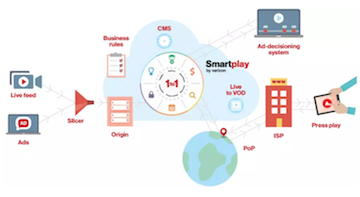Big Data, Digital Marketing and the Equifax Data Breach

“Marketers. Ready, aim, engage! It is easier than ever to hit the right marketing targets,” explains Equifax (link is external) about its far-reaching data capabilities that capture, analyze, and sell our information. Equifax’s admission last week about its loss of personal information on 143 million Americans—including Social Security and drivers license numbers—is also a wake-up call about the dramatic loss of our privacy in the digital era. Most people think of Equifax as one of the “Big 3” credit-reporting agencies that provide information on our credit worthiness. But Equifax also profits from compiling and selling our data profile to financial services, retail, auto, telecommunications, and other industries for online targeting. As the company itself explains, “Equifax has grown from a consumer credit company into a leading global provider of insights.” It has built a major business offering (link is external) “audience profiling, targeting and measurement tools” that reflect data practices that undermine our privacy and can threaten the interests of consumers. As it explains (link is external) in its “Equifax for Marketing? Absolutely” document, “the advent of Big Data presents nearly limitless potential to help identify the most profitable customers and prospects…. Our data-driven marketing solutions help you synthesize consumer data for a holistic, 360-degree customer view.” Equifax pulls together and “enriches data from disparate sources” so others can have an “enhanced view” of who we are and what we do.
Unfortunately, that “enhanced view” means trampling on what should be our right to control who has access and can use our information. We shouldn’t be focused only on the loss of our information from a data breach—but also on how we can better address this issue at its core—by stopping the massive and stealth ways our data are being gathered and used in the first place. Just last month (link is external), Equifax further consolidated (link is external) its “data assets” to create what it calls its “Data-Driven Marketing” suite (DDM). It now provides “a single point of access to all of its data” in order to make using it more convenient for marketers.
Equifax’s current business practices reflect how our personal data is traded, shared, and sold today. An array of partners (link is external) collaborate to share information on an individual or a group to be targeted. Data from different sources are gathered, analyzed to identify patterns and opportunities; we are segmented and scored, given an invisible label that describes our financial status and behavior, and that information is then fed into superfast computers that deliver pitches and offers to us via mobile phones, PCs, and connected TVs. In its “Data-driven Marketing Solutions” paper (link is external) on financial services, Equifax touts its ability to directly measure “over $15 trillion of U.S. consumer investable assets…and credit data for over 220 million consumers in the U.S.” Equifax says that it can take that data to help clients target individuals “across channels: email, display, mobile, addressable TV, social, direct mail, point-of-sale, [and] call center.” This is what’s known as “omnichannel” marketing, and involves following us wherever we go online, and, via our mobile phone and apps, into stores and other physical locations as well.
For example, Equifax’s IXI (link is external) Services division enables marketers to “differentiate consumer households and neighborhoods, based on wealth, income, spending capacity, share-of-wallet and share of market.” One of its products—AudienceIntel (link is external)—“helps you understand the financial profile of your site visitors…[using] intuitive targeting segments based on our proprietary measures of households’ financial capacity, propensities, preferences, and behavior.” Among IXI’s “digital targeting segments (link is external)” are those who may need a “sub-prime credit card,” a “revolver” (someone with a high balance and will have to accrue interest charges), a “likely student loan target,” and “active debit card users.” Equifax’s IXI promises that it can help guarantee that its clients’ ads have been viewed by their “desired target audience” and whether a sale or some other response was completed—“online or offline.” Unlike Experian and Acxiom, Equifax’s IXI “receives data directly from financial institutions,” which it can segment in a more granular way, according (link is external) to trade reports.
Equifax’s “TokenIntel (link is external)” provides retailers with additional insights into our lives by linking point-of-sale and online transaction data with our use of credit cards. This includes geo-location information as well. Although Equifax claims its processes are privacy friendly, the technology it uses enables it to know each consumer and “household, allowing for a clearer picture of a household’s likely value to your brand.” “Communicate with shoppers like you know them…Because You Do!” Equifax explains, urging potential clients to work with it so that “your millions of transaction data points become the foundation” of more profiling and targeting of individuals.
Equifax has allied itself with other leading digital data companies that use cutting-edge ad technologies that help target us in milliseconds. They are now working (link is external) with Adobe, Lotame, Salesforce’s Krux, Neustar, MediaMath, and Acxiom’s LiveRamp (link is external), for example (as well as working with music site Pandora (link is external)). In other words, Equifax is helping other data targeting companies gain access to our information—an example of the out-of-control data system unleashed today. Because the U.S. doesn’t have any federal consumer privacy law—rules that the digital data and ad industries are violently opposed to—there’s nothing stopping them from collecting and using even more of our information. The breaches that are occurring begin the very first time a company takes our data, without any legal limits on what that company can do with such information.
—-
